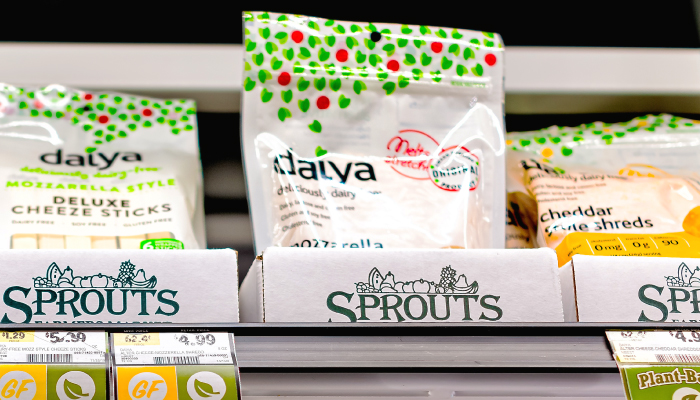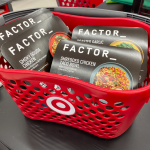Dairy Pride Act Reintroduced to Restrict Plant-Based Dairy Labeling

U.S. Senators Tammy Baldwin (D-WI) and Jim Risch (R-ID) last week reintroduced bipartisan legislation that would ban plant-based dairy alternative products from using dairy-related terms on their labels. Representatives Peter Welch (D-VT) and Mike Simpson (R-ID) also introduced companion legislation in the U.S. House of Representatives.
The legislation, known as the Dairy Pride Act, calls for the FDA to enforce the definition of milk established in its Code of Federal Regulations as being derived from hooved animals. The FDA’s current Code of Federal Regulations defines milk as “the lacteal secretion, practically free from colostrum, obtained by the complete milking of one or more healthy cows” and further specifies that products from goats and sheep are also included in this definition.
If passed, the act would prevent companies producing milk, cheese, yogurt and ice cream alternatives from nuts, seeds, plants or algae from using these terms.
A press release announcing the bill’s reintroduction claims the FDA has not enforced this definition to ensure accurate labeling, causing a trend of “mislabeling” which “conveys a nutritional equivalency that is not accurate,” and ultimately hurts dairy farmers.
The bill would require the FDA to issue draft guidance within 90 days of its enactment on how it will carry out enforcement of the use of terms such as “milk,” “yogurt and “cheese” to describe only animal-derived dairy, and final guidance of enforcement within 180 days. Two years after the bill’s enactment, the FDA would make a report to Congress to “hold the agency accountable” for enforcing the guidance.
“Dairy farmers in Wisconsin work tirelessly every day to ensure that their milk meets high standards for nutritional value and quality,” Senator Baldwin said in a press release. “Imitation products have gotten away with using dairy’s good name for their own benefit, which is against the law and must be enforced.”
The bill has garnered bipartisan support from Senators including Susan Collins (R-ME), Mike Crapo (R-ID) and Patrick Leahy (D-VT). It was originally introduced in 2017, but did not receive a vote. Following an FDA comment period, it was reintroduced in March 2019 but was stalled and once again did not receive a vote following the resignation of FDA commissioner Scott Gottlieb, who had previously expressed support for the bill. Since its introduction in the House and Senate last week, the bill has been referred to the Senate Committee on Health, Education, Labor, and Pensions and House Committee on Energy and Commerce for review.
Several dairy organizations, including the National Milk Producers Federation (NMPF), American Farm Bureau Federation and the National Farmers Union, have voiced their support for the bill to combat consumer confusion around the nutritional contents of plant-based milk. NMPF president and CEO Jim Mulhern called the FDA’s lack of enforcement of dairy standards of identity a “critical public health and fairness issue.”
“Without enforcement, we are left open to the potential for questionable products, deceptive practices, and, in cases such as mislabeled plant-based products that masquerade as having nutritional benefits similar to dairy’s, negative effects to our health,” he said.
The American Academy of Pediatrics (AAP) also submitted a comment in January 2019 supporting the bill, citing issues of “parental confusion” that is “unintentionally causing nutritional deficiencies in their children” as dairy products typically contain more vitamins, protein and key nutrients than their plant-based counterparts.
The Dairy Pride Act follows a slew of proposed legislation, introduced largely at the state level, regarding the labeling of plant-based alternatives including meat and dairy that advocate for restricting the language used on labels on the grounds of consumer confusion.
In response, The Plant Based Food Association (PBFA) has claimed that there is “no consumer confusion” around the difference between plant-based milk and dairy milk, calling the Dairy Pride Act “a solution in search of a problem.” According to PBFA Policy & Media Consultant Michael Robbins, the PBFA believes increased consumer demand for plant-based products has instead served as an incentive for companies to label their products accurately as dairy-free. Plant-based milk sales brought in $2.5 billion last year, with the segment now making up 15% of the total milk category, according to a report from PBFA and the Good Food Institute released earlier this month. Plant-based yogurt and cheese also saw sales growth in the double-digits.
“The anti-competitive, anti-free market, anti-First Amendment effort to harm an innovative, growth industry that is providing consumers with sustainable, healthy choices is clearly not about pursuing sound public policy,” Robbins said. “Lawmakers pursuing restrictions on labels for plant-based milks are instead pursuing political points with dairy lobbyists and seeking to harm the competition.”
The PBFA also noted in a previous press release that the Dairy Pride Act does nothing to address the “economic hardship” facing the dairy industry such as over-production and consolidation. While segments like dairy cheese and butter have seen a small uptick in consumption per capita in recent years, according to the USDA, consumption of fluid dairy milk has seen consistent declines. Despite claims of consumer confusion, the NMPF said it does not believe these declines are largely caused by consumers switching from dairy milk to plant-based milk, calling a supposed “mass switching” from one to the other “imaginary.”
However, despite a lack of “existential threat,” from plant-based milk, “every point of market share counts,” NMPF SVP of Communications Alan Berja said, and the group is prepared to go “toe-to-toe” with plant-based dairy brands.
“Saying dairy farmers shouldn’t care about labeling integrity because the market impact of mislabeled beverages isn’t major is like saying you should be OK with being pickpocketed because hey, the thief only took $10,” he said. “You want your $10, and you want the thievery to stop.”
















